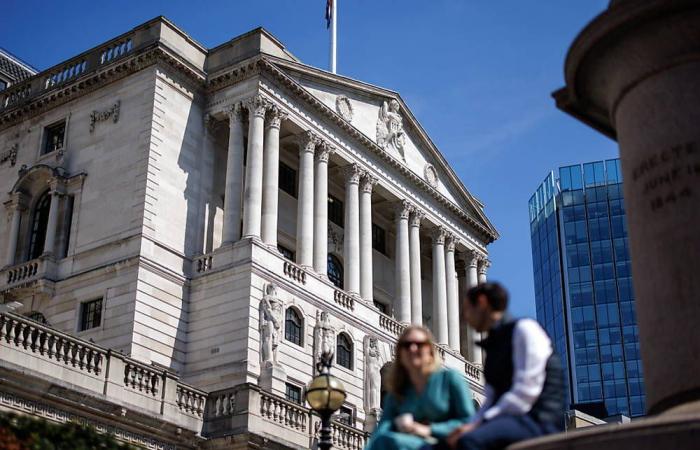The Bank of England (BoE) kept its key rate unchanged on Thursday, as expected, despite British inflation returning to its target, but the institution wants to ensure lastingly low price increases, in a context of elections legislative.
‘It is good news that inflation has returned to our target of 2%,’ said the governor of the British central bank, Andrew Bailey, on Thursday, but ‘we must ensure that inflation remains low and that’ This is why we have decided to leave the rate at 5.25% ‘for the moment’.
As economists expected, given the legislative elections scheduled for July 4 in the United Kingdom, the British central bank has thus kept the key interest rate at its highest level since 2008.
Just after the announcement that the elections would be held at the beginning of July, the BoE canceled almost all of its members’ speeches, so as not to appear to want to influence the outcome of the vote, for which the conservative government of Rishi Sunak is falling well behind the Labor opposition, according to polls.
In the report of its meeting on Thursday, the BoE however assured that ‘the date of the election was not taken into account in this decision’ to keep the rate unchanged.
Like the previous decision, only two members of the BoE Monetary Policy Committee voted in favor of a rate reduction, with the other members voting in favor of maintaining it.
This is the institution’s seventh status quo in a row. Analysts wonder if it is the latter.
Inflation fell to 2% year-on-year in the United Kingdom in May, for the first time in three years, according to official figures published on Wednesday.
The British central bank still forecasts that inflation will ‘increase slightly in the second half of the year’, while the fall in energy prices moderates, before falling more sustainably.
However, it notes that there remain ‘upward risks to the short-term inflation outlook linked to the geopolitical context’, with the war in Ukraine continuing to pose risks to the energy market, as do the risks extension of the conflict between Israel and Hamas.
The BoE has also raised its economic growth forecasts for the country. It now expects second-quarter gross domestic product (GDP) growth in the UK of 0.5%, higher than the 0.2% projected in its May report.
Stubborn service price inflation
Long the highest of the G7 countries, British inflation is now lower than that of the United States and the euro zone.
Before its decline in May, it had already slowed down significantly in April, to 2.3% over one year, far from the more than 11% reached at the end of 2022, which had generated a serious purchasing power crisis in the United Kingdom.
But the BoE is still concerned about persistent inflation in the services sector. A figure ‘higher than expected’, attributed in part to the annual price adjustments taking place in April and to the volatility of certain prices, in the hotel sector for example, notes the BoE in the report of its meeting.
Earlier on Thursday, the Swiss National Bank (SNB) cut its benchmark rate by a quarter of a point to 1.25%, with lower inflation in Switzerland than in many countries giving it more room to maneuver .
In March, the SNB had already created a surprise by lowering its key rate by a quarter of a point to 1.50%.
For its part, the Bank of Norway unsurprisingly kept its key rate at 4.5% on Thursday. It plans to maintain it at this level until the end of the year, due to still high inflation in the country.
Earlier in June, the European Central Bank (ECB) began its rate cut cycle.
Around 11:25 GMT (1:25 p.m. in Paris), the British currency slightly accelerated its losses against the greenback, losing 0.27% to 1.2686 dollars per pound.
The Swiss currency lost 0.71% against the dollar, to 0.8905 Swiss francs per dollar, and 0.56% against the single European currency, to 0.9554 Swiss francs per euro.
/ATS





